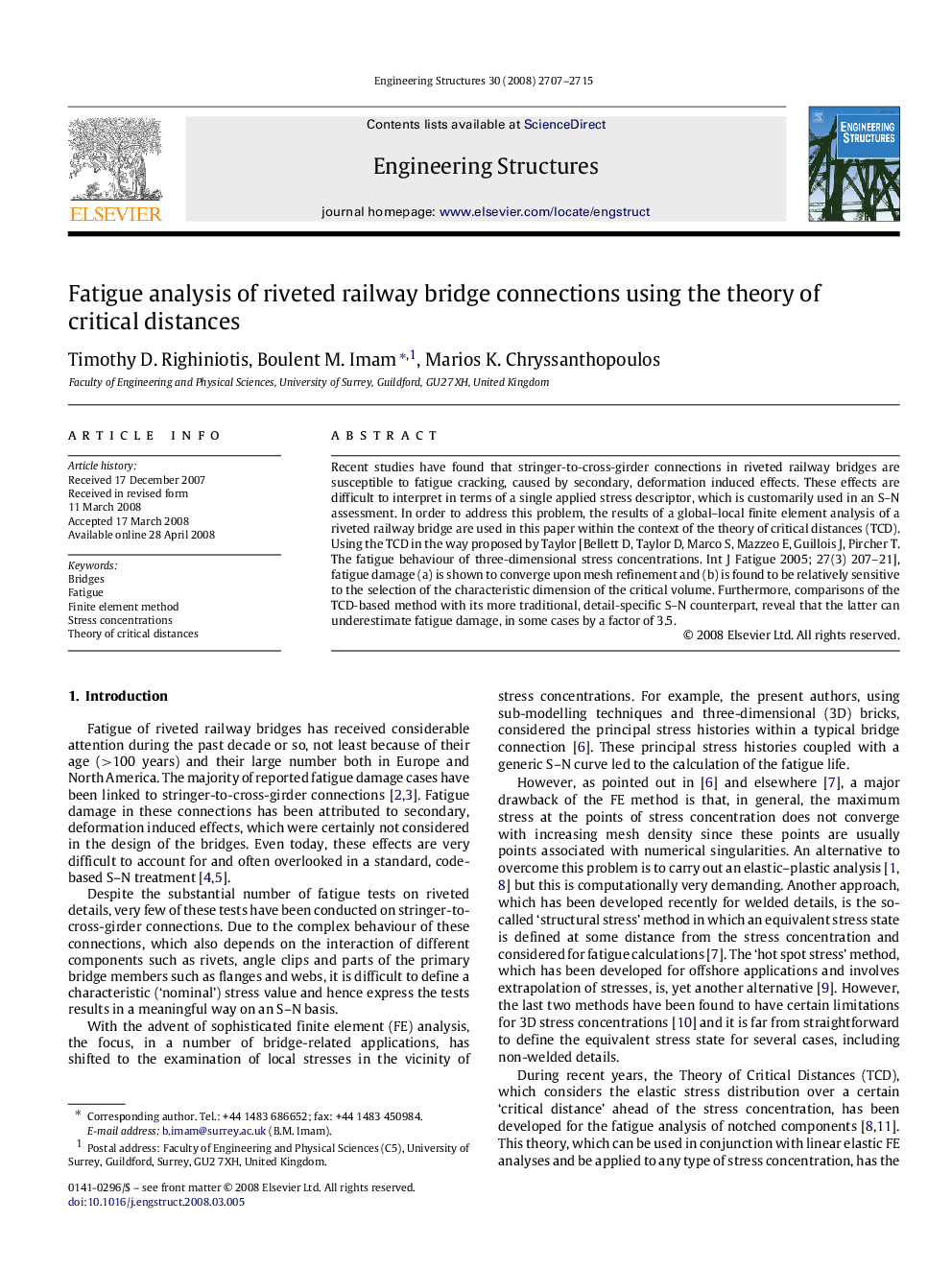| کد مقاله | کد نشریه | سال انتشار | مقاله انگلیسی | نسخه تمام متن |
|---|---|---|---|---|
| 268613 | 504441 | 2008 | 9 صفحه PDF | دانلود رایگان |

Recent studies have found that stringer-to-cross-girder connections in riveted railway bridges are susceptible to fatigue cracking, caused by secondary, deformation induced effects. These effects are difficult to interpret in terms of a single applied stress descriptor, which is customarily used in an S–N assessment. In order to address this problem, the results of a global–local finite element analysis of a riveted railway bridge are used in this paper within the context of the theory of critical distances (TCD). Using the TCD in the way proposed by Taylor [Bellett D, Taylor D, Marco S, Mazzeo E, Guillois J, Pircher T. The fatigue behaviour of three-dimensional stress concentrations. Int J Fatigue 2005; 27(3) 207–21], fatigue damage (a) is shown to converge upon mesh refinement and (b) is found to be relatively sensitive to the selection of the characteristic dimension of the critical volume. Furthermore, comparisons of the TCD-based method with its more traditional, detail-specific S–N counterpart, reveal that the latter can underestimate fatigue damage, in some cases by a factor of 3.5.
Journal: Engineering Structures - Volume 30, Issue 10, October 2008, Pages 2707–2715